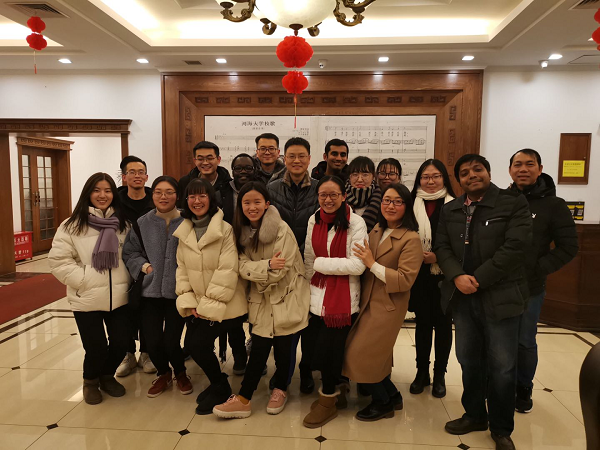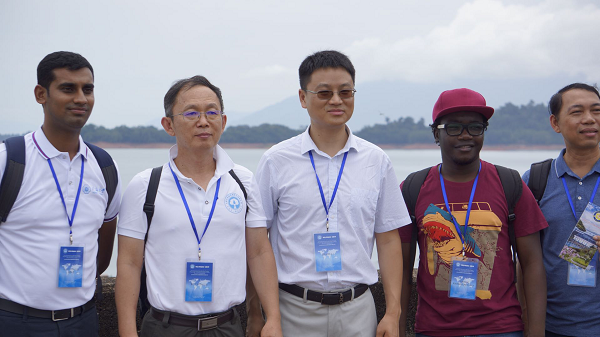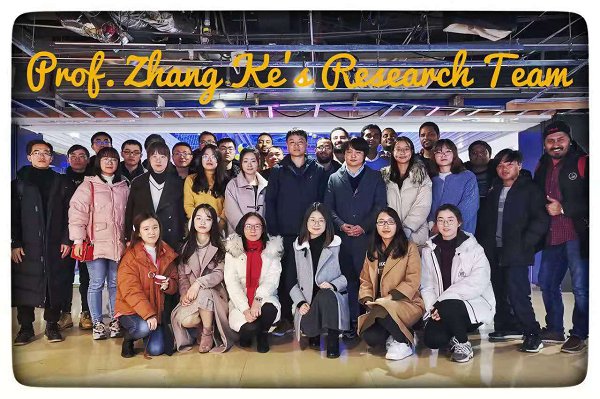Professor Zhang Ke: Teaching Students in Accordance with their Aptitude
Postgraduate study is, by its nature,challenging,especially for international students in China who are under language and cultural barriers and research pressures. Compare with domestic postgraduate students, international students in China need more help and care from supervisors. Therefore, it is essential to build a good supervisor-student relationship and maintain effective supervisor-student communications. As the primary source of guidance, instruction, advice, and encouragement for international students, good supervisors should take the initiatives to learn the needs, difficulties, research interests, and future plans of the students in their studies and livings. More importantly, supervisors should make friends with their international students and make them trust in you rather than feel fear in front of you. Moreover, supervisors should tailor research and study plans for the international students based on their personalities, backgrounds and talents. I usually invited all of my students, both Chinese and international students, to a dinner or a party before an important festival in China. By doing so, it can not only help the international students to learn Chinese cultures but also build a platform for all students to better know each other.
In the past six years, I had advised 15 international postgraduate students. Five of them are from the Mekong countries or other neighboring countries. I was impressed by their personalities and cultural backgrounds. Despite the differences in culture and background, they have one thing in common. They are enthusiastic to the future and thirsty to knowledge. Moreover, they are willing to share their cultures, thoughts, and ideas with me.
Mr. Zaw Myo Khaing was my 2017 doctoral student from Myanmar. Before he came to China, he had worked three years as an engineer. Although he was a little bit shy, he became talkative about his past research, work duties, and future plan when I discussed with him. From our discussion, I learned that he was very interested in flood forecasting and risk management. Therefore, we immediately agreed to conduct a research on flood forecasting and risk assessment in the Ayeyarwady River Basin based on satellite inundation and coupled hydrological-hydraulic modelling. Zaw was very excited about it and tirelessly learn how to process satellite images and how to use the programming language. We published a SCI-indexed journal article very soon.
Mr. Gazi Tawfiq Ezaz, a 2018 doctoral candidate from Bangladesh, is an enthusiastic and outgoing person. He showed a strong leadership and served as a volunteer and leader in several student organizations. He was also dedicated to scientific research. However, he lost the balance between studies and volunteer activities. After finding this issue, I had a long conversation with him in my office. We discussed his short-term and long-term plans. I shared my past experiences with him and talked on how to do research and manage time. After that conversation, Tawfiq soon unloaded his burden and found a perfect balance between studies and volunteer activities. Considering his strong leadership, I assigned him to contact with other international students to enhance my group management. His excellent achievements were soon recognized by the university and the Ministry of Education of China. He was awarded with the 2019 Ministry of Education Excellent Foreign Student Scholarship.
Mr. Ruben Gebdang Biangbalbe was another doctoral candidate from Cameroon. In the beginning, he lacked a deep thinking on the scientific questions and was unfamiliar with the Haihe River Basin. I patiently helped him to collect all necessary data, guided him to search literature, and taught him how to run the well-known SWAT model. As a smart student, he quickly mastered the necessary skills and creatively extended the research plan. When he graduated in 2020, Ruben had published three SCI-indexed articles with the fourth one ready to submit.
By reviewing my advisory work in the past six years, I have a strong sense of fulfillment. Advising international postgraduate students is not a simple teaching effort. Instead, advisors should communicate with their students frequently, think what they are thinking, and tailor the research plans based on his/her personality, skills, and experiences. It is critical to create opportunities for them as well. In 2019, the 2019 International Leadership Training Program for Young Professionals in Water Resources Management was launched by Hohai University. I encouraged Zaw, Tawfiq, and Ruben to apply for this program. Their applications were all approved. They worked with the other 45 students from over countries to conduct research on water resources, aquatic ecology and environment, hydropower, and transboundary collaborations in the Lancang-Mekong River Basin through literature review, lectures, and field surveys. They achieved a lot from the seven-day training, workshops, and field trips. The highest reward for an supervisor is to guide students one by one to make them successful in their life and work. I am always enthusiastic to share our culture and hospitality with my students and create a pleasant environment. By doing so, I expect that my international students could bring knowledge and friendship to all around the world.


